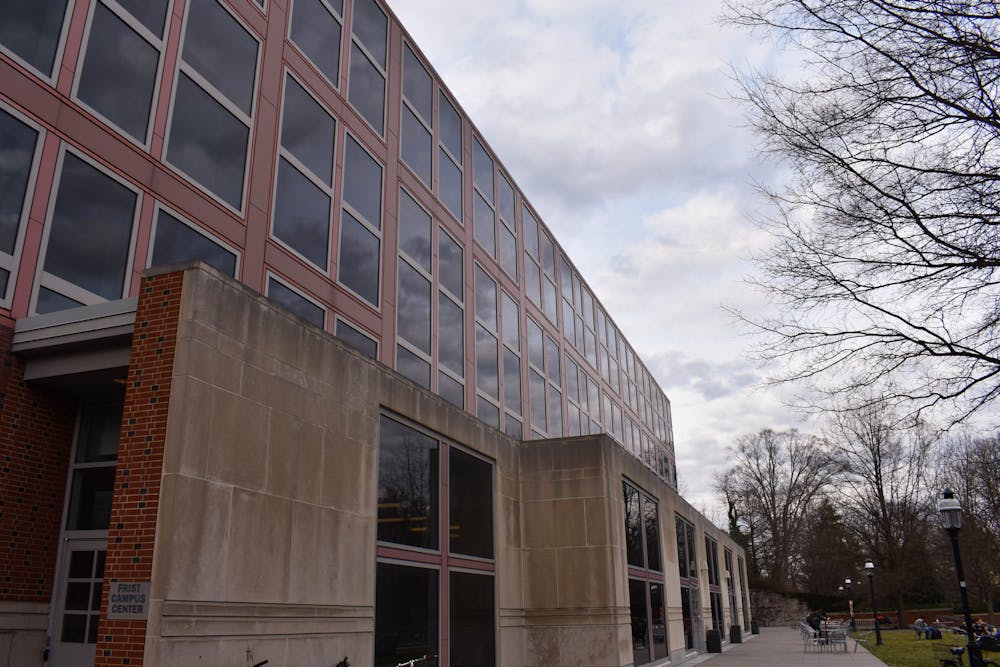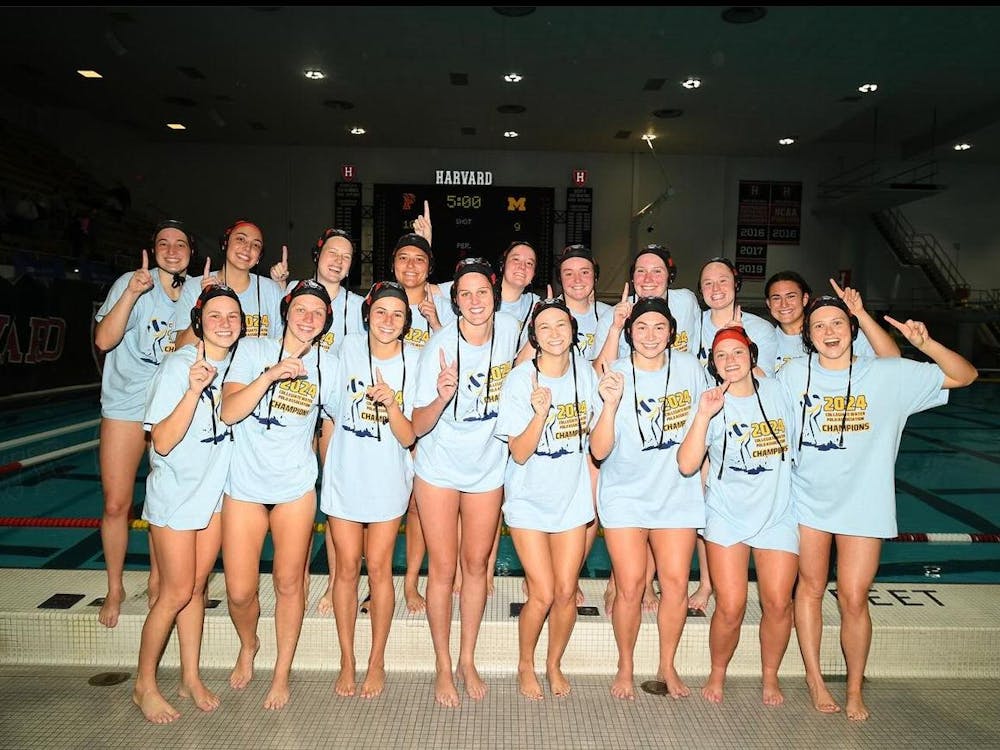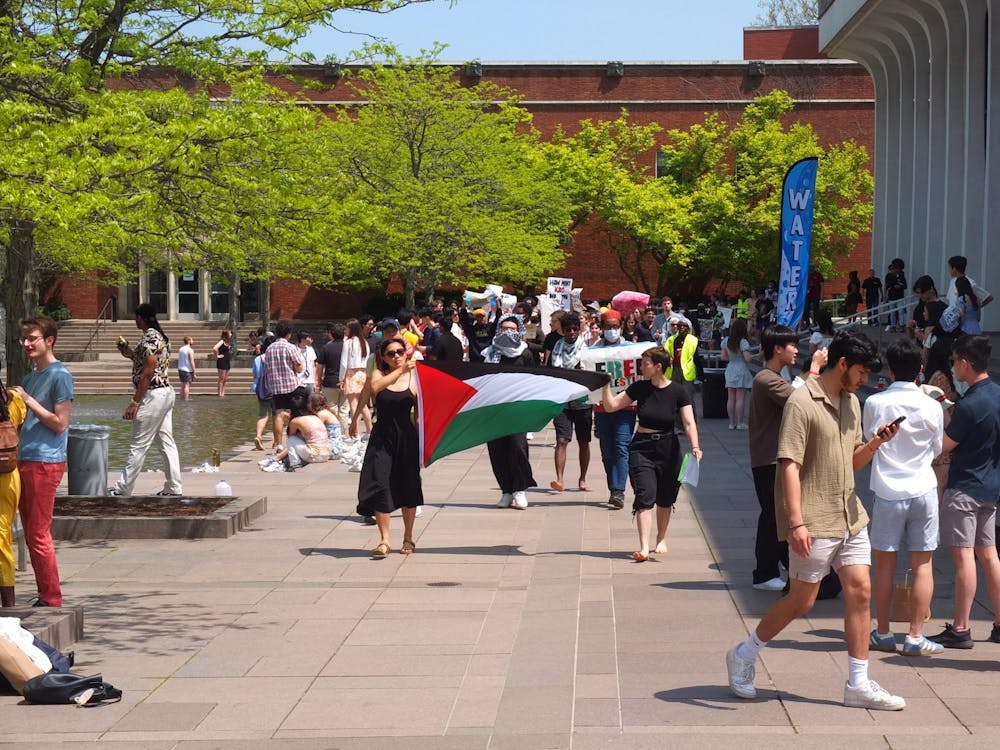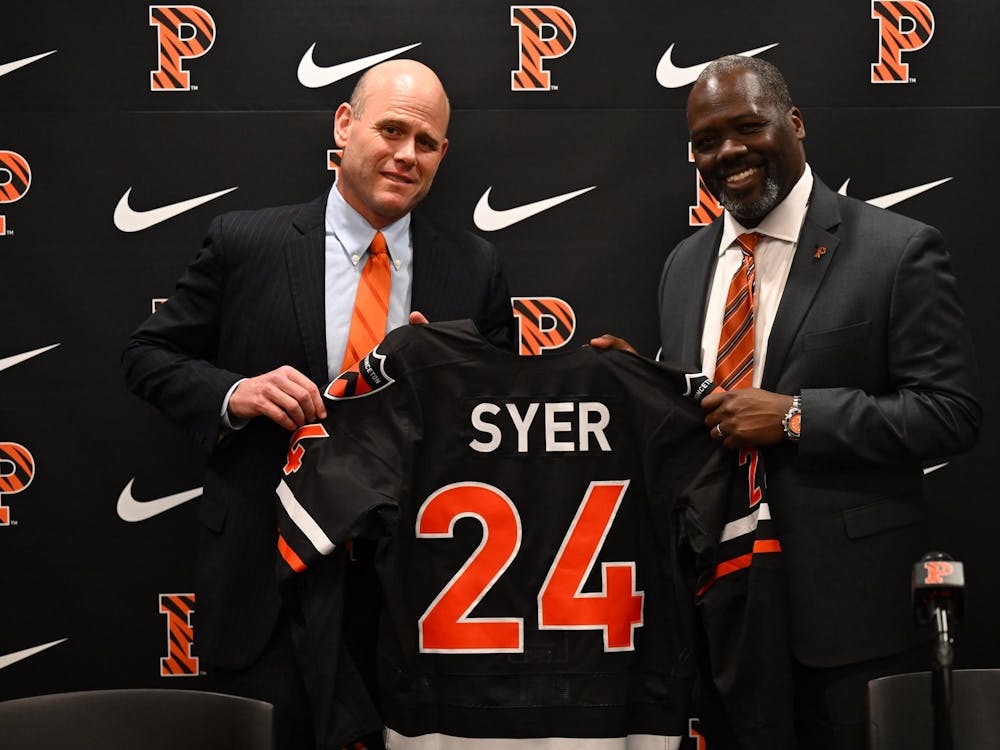“Choose yourself” — the advice given by one professor after hosting a brief listening session with students before a weekly seminar class. After validating student critiques of certain University policies, this professor (who will remain nameless) acknowledged that it was up to students to assert the importance of their well-being when the University does not.
More than a week after Dean Dolan’s memorandum to faculty urging “compassionate practices,” after months of The Daily Princetonian highlighting the seriousness of mental health and the prevalence of burnout amid heightened academic standards, and following reports of record numbers of CPS appointments as well as increases in student hospitalizations, it is clear: Princeton has failed its students. The University’s response to the pandemic has been defined by an incessant prodding of students to perform, a lack of transparency, and a purely reactive attempt at response.
Student safety and wellbeing is not just one criterion of the pandemic response: it is the only one that matters. Dean Dolan’s message is a sincere — albeit unfortunately unique — demonstration of care and concern for her students, all the more pressing because it expresses what the University supposedly espoused since the beginning of the pandemic: student well-being is the top priority. As professors are asked to consider “compassionate practices,” it is within reason to wonder why they have not been doing so since the very beginning of the academic year. Moreover, the University undermines itself in the eyes of students who, at serious cost to themselves, have performed exceedingly well for an institution that has not done the same for them.
In fact, this message may well fall on deaf ears given months of prior University messaging that has become all too predictable. An email from the McGraw Center for Teaching and Learning sent out on April 16 faced the ire of several students because of its thinly veiled reiteration of the University response to the pandemic. Titled “Feeling Burnt Out or Depleted? Procrastinating? Break the Avoidance Cycle,” the email goes on to acknowledge the pandemic with euphemisms (“given all that’s going on”) but calls procrastination “a problem that needs to be addressed.” Complete with TED talks and an advertisement for learning consultations, the email seemed representative of the University response: acknowledge abnormal times in which we live, feign consideration for student experience, and persist in teaching students how to soldier on. Of course, this is not meant to criticize the McGraw Center or the individuals who crafted the email, but it most certainly was not written with attention to the student struggle.
While most messaging has followed this same pattern, an especially pernicious aspect of the University’s pandemic response is its relative silence on the student experience. As previously reported, the administration indicated late last year that restrictions on campus, while necessary and at times seemingly overbearing, may eventually be rolled back if conditions improve. By virtue of signing the Social Contract, students who came back to campus accepted that restrictions would be both necessary for public health and quite visible. They have since been proven right. Despite months of low case counts and an effective test-and-trace apparatus that rivals those of small nations, the University has kept the majority of restrictions in place, save for a few new allowances for sports teams. In fact, as of this writing, the most notable relaxation of restrictions has been the decision to grant blanket approval to professors looking to host small classes and office hours outside — with only three weeks left in the academic year.
Given that the decision was communicated to faculty via email just one week after Dean Dolan’s memo, it appears as though this policy, while well-intentioned, is nevertheless a reactive, stopgap measure unlikely to have a real impact for the vast majority of students who are finished with classes. Allowing these in-person meetings does not seem to follow any marked shift in the public health conditions in New Jersey or the Princeton area, and only reinforces the point of The Daily Princetonian Editorial Board that the University needs to better explain its seemingly arbitrary policies. Even if new information or an improving health situation was the justification for this decision, the administration has, as of this writing, not communicated news of either to the student body.
Indeed, sometimes the University’s actions have spoken louder than either words or silence. This academic year, students were offered a compressed academic calendar, a shortened spring break — a particularly sore subject for students and one openly acknowledged in Dean Dolan’s memo as a source of stress — and now face a shortened reading period of eight days, as we did this past fall.
This, all while being told time and time again that despite “all that’s going on,” students should not shirk from their academic responsibilities. By demanding the same academic rigor of students and simultaneously shrinking the time frame in which it can be demonstrated, the University undermines its own policies and aspirations for an academically normal year amid abnormal times.
Furthermore, students are not, nor have they been, uniformly affected by these missteps. While spring break was ostensibly a period wherein students could not be assigned work or be given exams, most professors simply scheduled these assessments for the days immediately before or immediately after the break, leading to a clustering potentially worse than a normal academic week. Many students had no break at all as a result. Pretending as though the same work ethic carefully cultivated here at the University would not compel students to work right through their recess to complete these assignments represents at least an ignorance of who students are and, at worst, an apathy towards them.
Additionally, the pass/D/fail option was only haphazardly implemented across the University, with some departments being much more generous in which courses and requirements students could PDF. As a result, vast swaths of the student body whose concentrations were less than understanding had no choice but to plug along with course loads chosen under the assumption of compassionate and understanding faculty.
At this point, one might argue that the administration is staffed by fallible human beings who have been trying their best to operate amidst once-in-a-generation difficulties. But, if an institution, especially one as robust as Princeton, is not better prepared to weather crises; better situated to receive, process, and effectively communicate information; and better equipped to handle student needs in trying times, then what is it for? What is the point in building institutions and entrusting ourselves to their care if, when it matters most, they perform no better than the rest of us? A place like Princeton is supposed to be more than a collection of individuals, more than the sum of its parts. The University cannot, or at least should not, on one hand demand the obedience of students and on the other claim weakness in the face of challenges. In the same way, students cannot be expected to behave and perform normally and also face down the numerous crises emerging everyday in the world.
Some may also say that these points are nothing but a list of bygone grievances that cannot be adequately solved. On this point, I believe other students and I agree. The record high appointments with CPS and increases in student hospitalizations are simply the outward manifestations of mental health issues that have been festering within students for months. Pretending that the administration is a benevolent chaperone for students for four years is insincere and misleading. Furthermore, students retain the right to criticize the abject failings of the University whenever they so choose, and most especially when the administration’s own policies or lack of foresight have so clearly, and possibly indelibly, scarred students.

So, no, Princeton University is not responsible for the pandemic, but it is responsible for its students. And yes, while some of the worst repercussions of the University’s failure to protect students have already been felt, Princeton still needs to learn from these mistakes. The administration needs real, proactive engagement with students at the outset of a crisis and must maintain consistent and transparent contact throughout. Student government officials, student organization leaders, team captains, and other campus leaders must be given real access to help the University formulate policies concerning students instead of being relegated to the task of communicating them after finalization. These consultative practices should also result in policies with a real chance of being adopted by all those affected or, as seen with the PDF policy, students will be differently served and harmed. Faculty must recognize the privileged role they have within departments, organizations, and the administration and speak out for the benefit of their students when it really matters, not with just days left in the academic year.
For those thinking that the administration already consults students or that, given a larger role in campus policy, student demands will become unrealistic, consider the immense goodwill with which students have conducted themselves every day. The vast majority of students have, even if only begrudgingly, acknowledged the University’s intention to maintain academic rigor and have done the utmost to achieve that vision. Some of them have given too much of themselves to do so. With every test, assignment, and paper, we write and sign the Honor Code affirming our own integrity and the trusted relationships we have with our community. Students have consistently demonstrated our goodwill to our professors and administrators throughout the pandemic, but we have not been shown that same goodwill in return.
I am a first-generation, low-income student and a first-generation American. I am under no misconception that the opportunities Princeton has given me are quite literally several lifetimes in the making. But it is precisely because of these chances, and because of the mission given to me by this University to put myself at the service of humanity, that I now criticize the same University, which has given so much to me and others, for taking far too much from my peers.
Mark Twain is credited with saying, “The difference between the almost right word and the right word is really a large matter — an important matter indeed; ’tis the difference between the lightning bug and the lightning.” In this case, regardless of good intentions or incomplete information, and in spite of the goodwill, determination, and extraordinary feats of students this academic year, the right word is failure.
Dillion Gallagher is a sophomore concentrating in the School of Public and International Affairs. He can be reached at dilliong@princeton.edu.









